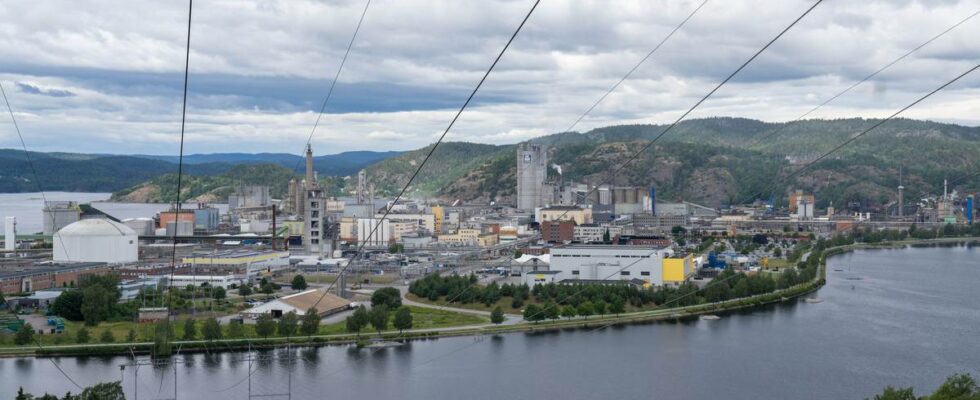– In the worst case, we could see the slow death of industry if we don’t get anything done with the power supply, says Sverre Gotaas, who is managing director at Herøya Industripark. Sverre Gotaas believes that the whole of society will be affected if something is not done quickly. Photo: Fredrik Pedersen / news He has been worried for a long time. But it is the first time he uses the word “industrial death” in his mouth. Public. The electricity price is a concern In the industrial park, he has already seen possible new establishments disappear from the queue where companies are waiting to be connected to the electricity grid: – We have one case that has gone to Northern Norway. That’s nice. The others have either said that this project will not come to fruition, or they have taken it abroad with them, he explains. The battle for electricity is great in Grenland. Photo: Fredrik Pedersen / news Now it is the electricity price that is his biggest concern. He fears the shortage will be so great that the established companies will have to pay much more than today for electricity. This can cause them to reduce their activity. – If they start to reduce their activity, it affects the whole of society down here, he explains. The resistance to local wind power is large, and can cause the current region to change. There may be more price ranges. Statnett is responsible for expanding the network capacity. At the moment, they are working on the area plans for the various electricity regions in Norway. Meetings are taking place all over the country and on 30 October they will come to Grenland. – Grid reinforcements and new production of power in the Greenland area are important. Statnett has therefore initiated extensive measures to increase capacity in the network into this area, says Harris Utne, who is responsible for regional plans West and South in Statnett. Statnett explains that the price ranges can change if conditions in the power system change. – In that case, it will only happen after an extensive formal process with input from affected parties, he says. Utne emphasizes that the energy authorities must approve the changes and adds that: Even if Norway were to get more price ranges, it does not necessarily mean that there will be greater price differences. – New areas will enable us to make better use of the system. It is generally consumption and production that determine whether the price will be high or low, he says. This week, business, politicians and the energy minister gathered to discuss the power crisis. The municipalities must take responsibility. It is urgent to build out more renewable power, is the message from a united business community. But there are several mayors in the hall who have come to power by saying no to wind power. The Minister of Energy is clear that they all have a responsibility. – When you need a lot more power, then we have to make sure that more renewable energy is developed, he says with a clear call to the local politicians. Energy Minister Terje Aasland is clear that the municipalities have a responsibility to develop more power. Photo: Fredrik Pedersen / news He understands that business is impatient. – We want to do it together with the municipalities. Facilitating wind power, solar power and upgrades to our hydropower are important instruments, he says. But he does not want to do anything with the veto right the municipalities have been given. The manager of the industrial park is clear that the power must be produced locally, which is how the whole industrial adventure in Telemark started. Norsk Hydro commissioned power from Europe’s largest hydroelectric plant at Notodden. It is now considered a world heritage site. Assessing abroad It is not just Grenland that is concerned about higher electricity prices. – If we have too high electricity prices, then we will not be able to compete with other countries in the world, says managing director Hans Monsebakken in EverSinc. Hans Monsebakken in EverSinc needs a lot of energy and is worried that he will not be able to compete with foreign countries. Photo: Fredrik Pedersen / news His company is Larvik’s largest electricity consumer. He too has taken the trip to meet politicians and others who are in the same situation as him. – There is a risk that we ourselves within the group will move part of the production out of the country, he says. Published 09.10.2024, at 15.39
ttn-69
Fears new power regions will lead to industrial death – news Vestfold and Telemark – Local news, TV and radio

